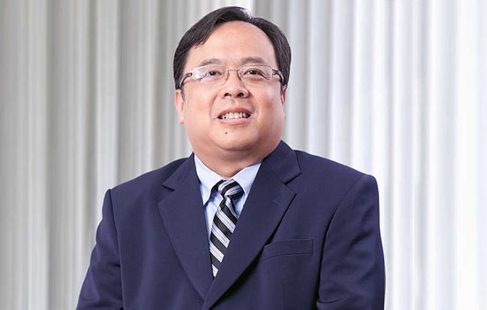Bambang Brodjonegoro: Pursuing Domestic Independence
DEPOK (21/10/2020)
Recent evidence shows that immunity to Covid-19 infection is temporary, so vaccinations may have to be repeated. This has an impact on the large demand for vaccines, so it is important for Indonesia to manufacture the vaccine itself and not depend on imports.
“No vaccine can maintain immunity for life. We still have to have the ability to deliver or provide vaccines made in the country,” said Minister of Research and Technology / Head of the National Research and Innovation Agency Bambang PS Brodjonegoro, on Tuesday (20/10/2020).
According to Bambang, efforts to buy vaccines from abroad are a short-term option. “We do buy (vaccines) directly, but there is priority over technology transfer. Not only with China, but with South Korea and Turkey,” he said.
To answer medium and long-term needs, according to Bambang, six institutions are currently preparing for the Red and White vaccine, namely the Eijkman Institute, the Indonesian Institute of Sciences, Universitas Indonesia, the Bandung Institute of Technology, Airlangga University, and Gadjah Mada University.
“Hopefully the six of them have the right to make vaccines that meet the safety and efficacy criteria,” he said.
Among these six institutions, according to Bambang, vaccine candidates from Eijkman and Universitas Indonesia will soon be tested on animals. “These two vaccines will later be submitted to Bio Farma. If all goes well, in January 2021 or no later than February 2021, the vaccine cultures will be handed over,” he explained.
To support the production of this vaccine, Indonesia has sent 114 whole genome sequencing (WGS) or the total genome of the SARS-CoV-2 virus analyzed from specimens of positive Covid-19 patients in Indonesia to GISAID or the world virus data bank.
540 million doses
Bambang said, to achieve community immunity, vaccines must at least be given to 75 percent of the population or 180 million people. If the administration is repeated twice, a minimum of 360 million doses is needed. If it must be given to the entire population, the need for vaccines for two times reaches 540 million doses.
Because the need for vaccines is very large, according to Bambang, Bio Farma may not be able to go about it alone. Therefore, efforts will be made to collaborate with other companies, such as Kalbe Farma, PT Sanbe Farma, PT Daewoong Pharmaceutical Company Indonesia, PT Biotis, and Tempo Scan.
“Some of them have already invested and processed permits to the BPOM (Food and Drug Supervisory Agency). Some of them are currently preparing the investment plan and the permit,” said Bambang.
Based on data at www.covid-19vaccinetracker.org, there are currently 213 vaccines being developed and 36 of them are currently undergoing clinical trials. Eleven vaccines are undergoing phase three clinical trials and none has yet been completed. However, six of them have received approval for use in emergency situations (emergency use authorization / EUA) in Russia and China.
So far, vaccines from Indonesia have not been registered. Head of the Eijkman Institute for Molecular Biology, Amin Soebandrio, said that his institution would register the vaccine after animal testing, which is expected to be carried out later this month.
In accordance with World Health Organization (WHO) regulations, EUA can be used for medical products to diagnose, treat, or prevent life-threatening diseases or conditions caused by an outbreak, such as Covid-19, when no adequate, approved, and available alternatives exist.
However, the Food and Drug Administration (FDA) of the United States states that, to carry out EUA, the known and potential benefits of a product must outweigh the risks. Benefit and risk determinations cannot be applied to vaccines that have little benefit or for which there is insufficient data to analyze their safety profile.
Reinfection
The study, published in the journal The Lancet Infectious Diseases, online on October 12, 2020, said the first confirmed case of Covid-19 reinfection occurred in the US. These findings suggest that exposure to the virus may not guarantee future immunity.
The patient who experienced this reinfection was a 25-year-old Nevada man. It was confirmed that he was infected with two different variants of SARS-Cov-2 within 48 days. The second infection was more severe than the first, resulting in the patient being hospitalized with oxygen support.
The study, written by Richard L Tillert of the Nevada Institute of Personalized Medicine, University of Nevada, and the team, listed four other cases of reinfection that were confirmed globally. (hjtp)
Source: Kompas Daily. Edition: Wednesday, October 21, 2020. Page 1 continued to Page 15.
(am)

